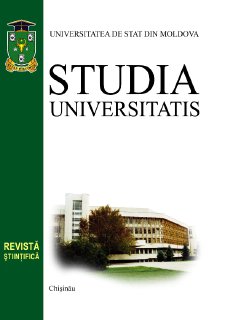INFLUENCE OF VITAMIN B 12 ON CHEMICAL SELF-PURIFICATION PROCESSES OF WATER SYSTEMS
Максим ЧИСТЯКОВ, Владислав БЛОНСКИ, Виорика ГЛАДКИ, Молдавский государственный университет
Abstract
This article describes the participation of vitamin B12 in the processes of chemical self-purification of water. The
experiment was carried out in laboratory conditions by simulating systems. It was found that the pharmaceutical
form of vitamin B
12 (cyanocobalamin) undergoes direct photolysis (k=(2.20±0.11)·10-4s-1) transforming into the
hydroxocobalamin form. Using an indirect method for determining the intensity of radical processes - inhibitory
ability, it was determined that in natural waters vitamin B12 will exhibit reducing properties, leading to a decrease
in oxidative equivalents, but in the presence of other substances with a more pronounced reducing character, for
example thiols, this vitamin will exhibit catalytic properties in the process of their oxidation. This is confirmed by the
values of the inhibitory ability, which in the system B12-PNDMA-H2O2-hν (Σki[Si]=1,6·107 s-1) is 3,4 times greater
than in the system B12-Cys-PNDMA-H2O2-hν (Σki[Si]=4,7·106 s-1).
Keywords: photolysis, vitamin B12, thiol, inhibitory ability, reducing agents, self-purification, natural waters.


